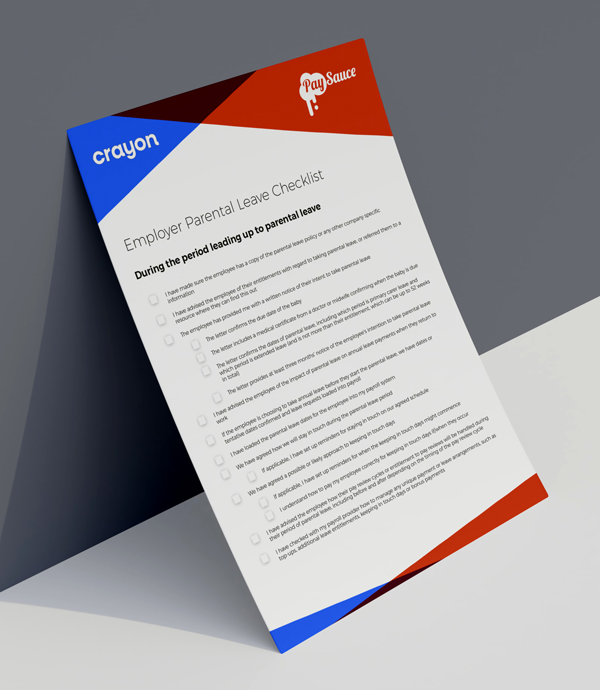Parental Leave
Employee Entitlements When Returning to Work
This is a guest collaboration series with our friend Stephanie Pow from Crayon - she's building the first home for money and parenthood in New Zealand, helping parents navigate the unique financial puzzles they face so they can be the parents they want to be.
This part of the series covers what your employees are entitled to, so you know your obligations as an employer.
Requesting an early return
If your employee wants to return early to work, they must make a request in writing at least 21 days before their preferred return date. Generally, they can only go back to work early if you as their employer agrees. However, they can return without your agreement if:
They or their partner are no longer the primary carer of the child
Their child is miscarried, stillborn or passes away
The right to request flexible working conditions
Employees have the right under Part 6AA of the Employment Relations Act 2000 to make requests for flexible working conditions. A request can be made at any time - not just after returning to work after parental leave - but it is a common ask from new parents preparing to re-enter work. Flexible working conditions can mean hours of work, days of work, or place of work - or any combination of those. It can also mean changes to specific duties or responsibilities, such as how the work is done. Employers need to acknowledge the request and then consider it. You can ask for more information or clarification if you need it. You must deal with it as soon as possible and it must be done within a month. The employee’s application for changing work conditions, the employer’s acknowledgement and the response must all be in writing. Employers can only decline these requests for specific reasons, and it must be included in the response to the employee.
Employment New Zealand has great forms and information for both employees and employers here.
Breastfeeding in the workplace
Employers are required to provide breaks and facilities for breastfeeding or expressing milk if it is reasonable and practical. Breastfeeding facilities can be simple - check out this government provided Code of employment practice on infant feeding. Spoiler alert: it can’t be a toilet!
Ideally, it will be somewhere with a door that locks, is clean, tidy, has a place to sit. It doesn’t have to be a separate room if this is not possible, and the facilities don’t all need to be in the same space. For example hand-washing might be separate from the actual space being used, as might the access to a fridge to store pumped milk if needed. Chat with your employee to see what they need, and work together on what is possible in your workplace(s).
Not returning to work
An employee needs to let you know at least 21 days before the end of their parental leave if they are not going to return to work. However, if their resignation period in their contract is longer than 21 days (e.g., one month) then this is the amount of notice that they’ll need to give you that they aren’t returning to work. The employee isn’t required to let you know any earlier than that, although if you’ve built a healthy, respectful relationship with your employee, then it’s likely they’ll tell you as soon as they are certain.
If an employee doesn’t return to work, the end date of employment is considered to be the last day of work before they went on parental leave. That means leave that they gained while on their period of parental leave is not owed to them, and the termination pay needs to be calculated based on the entitlements that existed on their last day of work. Your payroll provider can help on this one if you need it.
 Stephanie Pow
Founder & CEO - Crayon
Stephanie Pow
Founder & CEO - Crayon
 Jessica McLean
CPO - PaySauce
Jessica McLean
CPO - PaySauce


